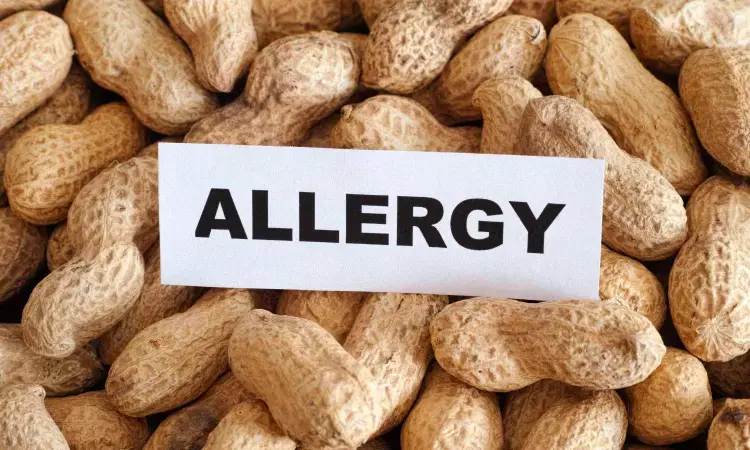- Home
- Medical news & Guidelines
- Anesthesiology
- Cardiology and CTVS
- Critical Care
- Dentistry
- Dermatology
- Diabetes and Endocrinology
- ENT
- Gastroenterology
- Medicine
- Nephrology
- Neurology
- Obstretics-Gynaecology
- Oncology
- Ophthalmology
- Orthopaedics
- Pediatrics-Neonatology
- Psychiatry
- Pulmonology
- Radiology
- Surgery
- Urology
- Laboratory Medicine
- Diet
- Nursing
- Paramedical
- Physiotherapy
- Health news
- Fact Check
- Bone Health Fact Check
- Brain Health Fact Check
- Cancer Related Fact Check
- Child Care Fact Check
- Dental and oral health fact check
- Diabetes and metabolic health fact check
- Diet and Nutrition Fact Check
- Eye and ENT Care Fact Check
- Fitness fact check
- Gut health fact check
- Heart health fact check
- Kidney health fact check
- Medical education fact check
- Men's health fact check
- Respiratory fact check
- Skin and hair care fact check
- Vaccine and Immunization fact check
- Women's health fact check
- AYUSH
- State News
- Andaman and Nicobar Islands
- Andhra Pradesh
- Arunachal Pradesh
- Assam
- Bihar
- Chandigarh
- Chattisgarh
- Dadra and Nagar Haveli
- Daman and Diu
- Delhi
- Goa
- Gujarat
- Haryana
- Himachal Pradesh
- Jammu & Kashmir
- Jharkhand
- Karnataka
- Kerala
- Ladakh
- Lakshadweep
- Madhya Pradesh
- Maharashtra
- Manipur
- Meghalaya
- Mizoram
- Nagaland
- Odisha
- Puducherry
- Punjab
- Rajasthan
- Sikkim
- Tamil Nadu
- Telangana
- Tripura
- Uttar Pradesh
- Uttrakhand
- West Bengal
- Medical Education
- Industry
Can Aerosolized nut particles circulation in aircraft ventilation system pose risk of allergy?

A new study published in the Archives of Diseases in Childhood showed that passengers at risk of anaphylaxis should always carry two adrenaline auto-injectors during the flight. In the UK, 1% to 2% of adults and 2% to 3% children suffer from a food allergy where the frequency is comparable in other medium-to-high income nations. The kids with food allergies take extra care when travelling, which is likely why allergic responses during commercial air travel are 10 to 100 times less prevalent than the ones on the ground, despite popular perception.
Studies have indicated that peanuts are easily spread by contact and saliva. During a commercial trip when deshelled roasted peanuts were consumed and another flight where no peanuts were given, Jin and team assessed the amount of peanuts found in surface swabs from aeroplane tray tables, seats, and air samples. The evidence for methods to help avoid unintentional allergic responses when flying on commercial aircraft was examined by Paul Turner and his team in this research.
The findings of a systematic review of the literature, which was commissioned by the Civil Aviation Authority of U.K, were compiled for this evidence review. The review covered studies between 1980 and 2022 that examined the risks to food-allergic passengers on commercial flights and potential mitigation strategies.
- According to research investigations (including simulations of airplanes), there is no proof that nut allergens are likely to spread via the air. Therefore, announcements calling for "nut bans" are not encouraged and might provide a false sense of security.
- Passengers cleaning their seat area which included the tray table and seat-back entertainment system was considered to be the most efficient solution. Food proteins are frequently "sticky" and attach to these surfaces, making it simple for them to move from there to a person's hands and onto potentially edible food.
- Through pre-boarding, airline businesses may assist in making this possible. 2 adrenaline [epinephrine] autoinjector devices should be recommended for passengers who are at risk of anaphylaxis and should always be carried on board, especially during flights.
Overall, in the event of an emergency, airlines should think about including a separate supply of "general use" adrenaline autoinjectors in the onboard medical kit. Every airline should have transparent food allergy rules that are readily accessible on their websites or upon request. To reassure passengers with food allergies and their caretakers, ground crew and cabin crew should implement these regulations uniformly.
Reference:
Turner, P., & Dowdall, N. (2024). Flying with nut and other food allergies: unravelling fact from fiction. In Archives of Disease in Childhood (p. archdischild-2024-327848). BMJ. https://doi.org/10.1136/archdischild-2024-327848
Neuroscience Masters graduate
Jacinthlyn Sylvia, a Neuroscience Master's graduate from Chennai has worked extensively in deciphering the neurobiology of cognition and motor control in aging. She also has spread-out exposure to Neurosurgery from her Bachelor’s. She is currently involved in active Neuro-Oncology research. She is an upcoming neuroscientist with a fiery passion for writing. Her news cover at Medical Dialogues feature recent discoveries and updates from the healthcare and biomedical research fields. She can be reached at editorial@medicaldialogues.in
Dr Kamal Kant Kohli-MBBS, DTCD- a chest specialist with more than 30 years of practice and a flair for writing clinical articles, Dr Kamal Kant Kohli joined Medical Dialogues as a Chief Editor of Medical News. Besides writing articles, as an editor, he proofreads and verifies all the medical content published on Medical Dialogues including those coming from journals, studies,medical conferences,guidelines etc. Email: drkohli@medicaldialogues.in. Contact no. 011-43720751


